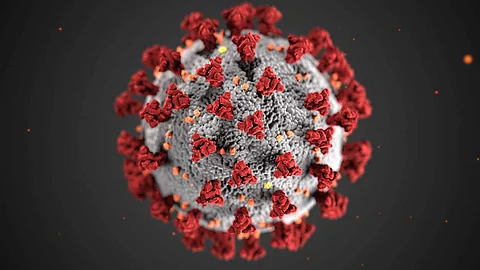

Scientists have uncovered how the immune system is altered in a rare COVID-19 related illness in children which can cause severe inflammation and heart damage, findings that may lead to better treatment for some of the youngest patients infected with the novel coronavirus. According to the researchers, including those from King's College London in the UK, the rare disease, referred to as paediatric inflammatory multisystem syndrome (PIMS-TS), has emerged in a small number of children during the COVID-19 pandemic.
In a study, published in the journal Nature Medicine, they noted that the condition causes severe inflammation in blood vessels and can lead to heart damage. In the research, the scientists analysed blood samples from 25 children who had tested positive for infection with the novel coronavirus SARS-CoV-2, and had PIMS-TS as well as symptoms of COVID-19.
They also assessed blood samples from children who had been in close contact with someone who tested positive, or whose parent was a healthcare worker. According to the study, the samples were drawn and tested at different stages of the disease, from the acute phase when the children were first admitted in the hospital, through to their outpatient appointments.
The researchers then compared these results to those of seven healthy age-matched children. The findings revealed that in the acute stage of PIMS-TS, children have raised levels of the body's cell-cell signalling molecules called cytokines, and reduced levels of the immune system's white blood cells called lymphocytes. By the time the children had recovered, the scientists said, the immune system changes had gradually returned to normal.
Although the number of children in the study was small, the researchers said this is the first evidence about the role of the immune system in the disease. They believe it provides vital evidence for future research and will indicate what treatments may help patients with the condition. Initial reports of the syndrome from mid-April suggested the condition may be similar to existing inflammatory conditions such as Kawasaki disease.
However, the current research, according to the scientists, confirms that PIMS-TS affects the body in a different way to other known conditions and has been identified as a new syndrome. "PIMS-TS is a new syndrome. Our research has allowed us to provide the first description of the profound immune system changes in severely ill children with this new illness," said study co-author Manu Shankar-Hari from King's College London.
"These immune changes are complex. The innate, otherwise known as the rapidly responding, immune cells are activated," he added. According to Shankar-Hari, the lymphocytes, a particular type of white cell involved in specific protective immunity, are depleted, but appear to be actively fighting infection in the patients with the syndrome. "Clinically, these children respond to treatments that calm the immune system such as corticosteroid and immunoglobulins. Although there are similarities to existing conditions such as Kawasaki Disease, these clinical and immunological changes that we observe imply that PIMS-TS is a distinct illness associated with SARS-CoV-2 infections," he added.
